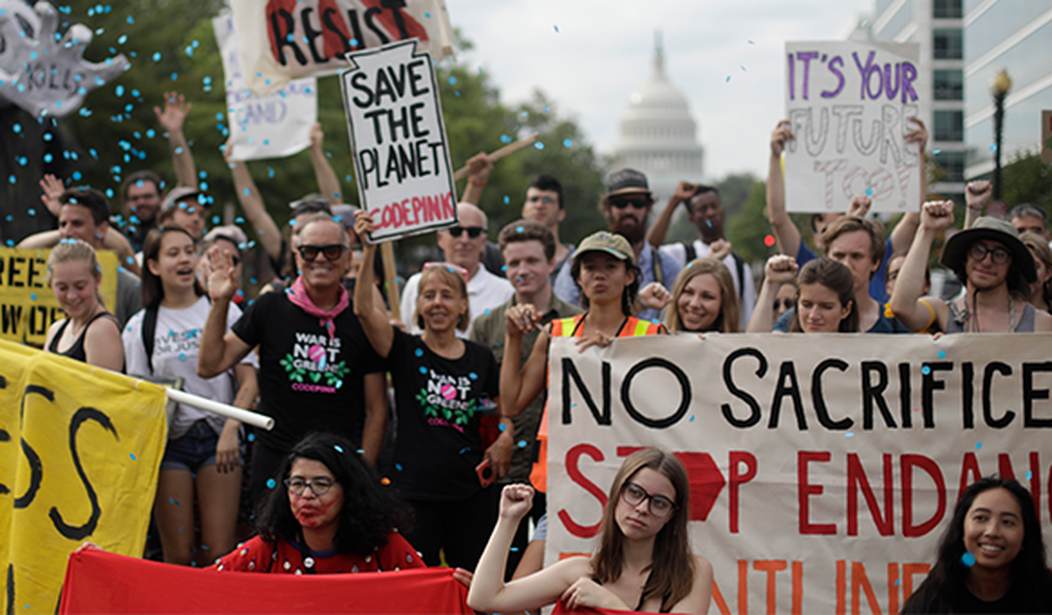We are told climate change is a crisis, and that there is an "overwhelming scientific consensus."
"It's a manufactured consensus," says climate scientist Judith Curry in my new video. She says scientists have an incentive to exaggerate risk to pursue "fame and fortune."
She knows about that because she once spread alarm about climate change.
Media loved her when she published a study that seemed to show a dramatic increase in hurricane intensity.
"We found that the percent of Category 4 and 5 hurricanes had doubled," says Curry. "This was picked up by the media," and then climate alarmists realized, "Oh, here is the way to do it. Tie extreme weather events to global warming!"
"So, this hysteria is your fault!" I tell her.
"Not really," she smiles. "They would have picked up on it anyways."
But Curry's "more intense" hurricanes gave them fuel.
"I was adopted by the environmental advocacy groups and the alarmists and I was treated like a rock star," Curry recounts. "Flown all over the place to meet with politicians."
But then some researchers pointed out gaps in her research -- years with low levels of hurricanes.
"Like a good scientist, I investigated," says Curry. She realized that the critics were right. "Part of it was bad data. Part of it is natural climate variability."
Curry was the unusual researcher who looked at criticism of her work and actually concluded "they had a point."
Recommended
Then the Climategate scandal taught her that other climate researchers weren't so open-minded. Alarmist scientists' aggressive attempts to hide data suggesting climate change is not a crisis were revealed in leaked emails.
"Ugly things," says Curry. "Avoiding Freedom of Information Act requests. Trying to get journal editors fired."
It made Curry realize that there is a "climate change industry" set up to reward alarmism.
"The origins go back to the ... U.N. environmental program," says Curry. Some U.N. officials were motivated by "anti-capitalism. They hated the oil companies and seized on the climate change issue to move their policies along."
The U.N. created the Intergovernmental Panel on Climate Change.
"The IPCC wasn't supposed to focus on any benefits of warming. The IPCC's mandate was to look for dangerous human-caused climate change."
"Then the national funding agencies directed all the funding ... assuming there are dangerous impacts."
The researchers quickly figured out that the way to get funded was to make alarmist claims about "man-made climate change."
This is how "manufactured consensus" happens. Even if a skeptic did get funding, it's harder to publish because journal editors are alarmists.
"The editor of the journal Science wrote this political rant," says Curry. She even said, "The time for debate has ended."
"What kind of message does that give?" adds Curry. Then she answers her own question: "Promote the alarming papers! Don't even send the other ones out for review. If you wanted to advance in your career, like be at a prestigious university and get a big salary, have big laboratory space, get lots of grant funding, be director of an institute, there was clearly one path to go."
That's what we've got now: a massive government-funded climate alarmism complex.

























Join the conversation as a VIP Member